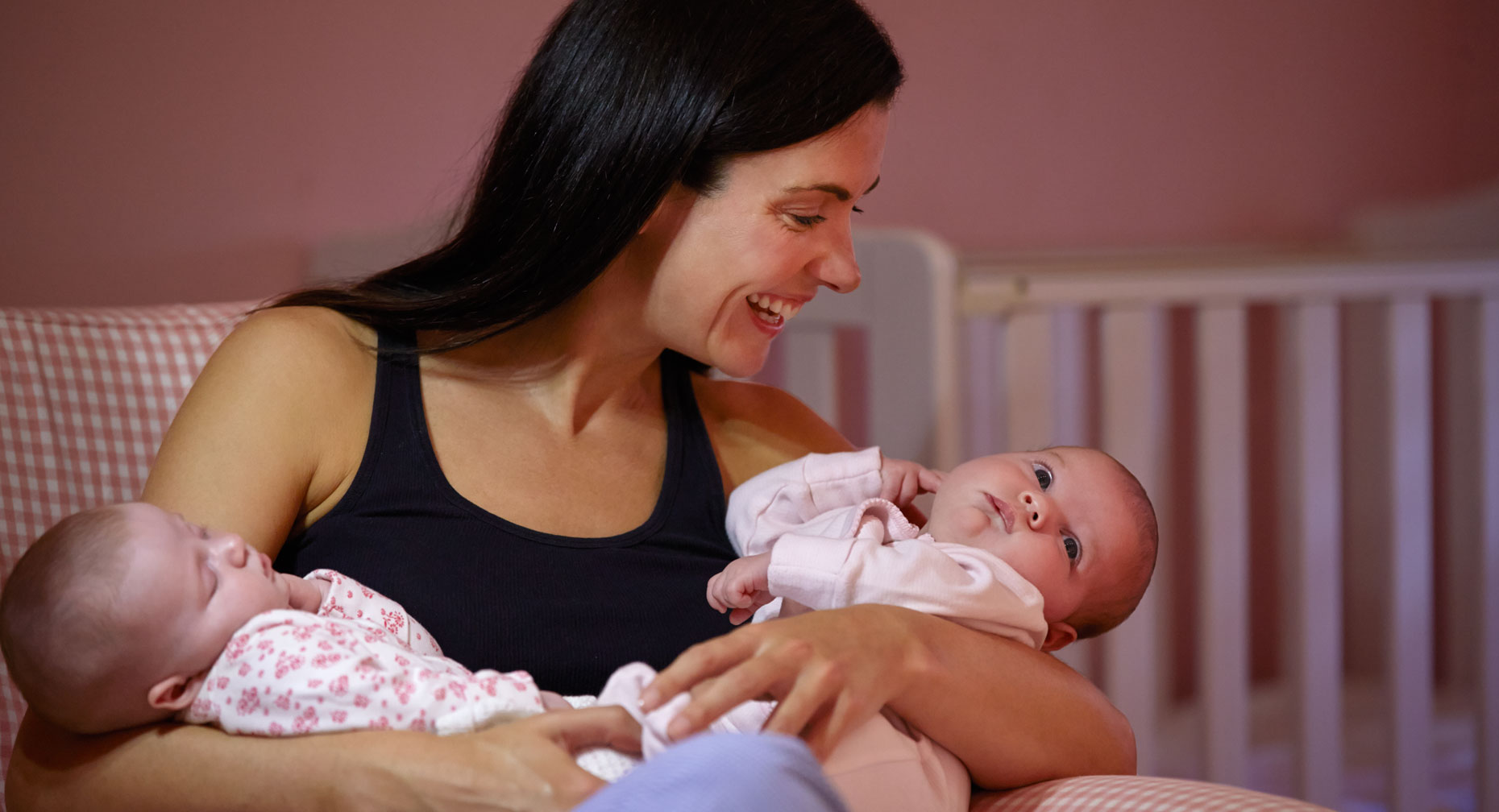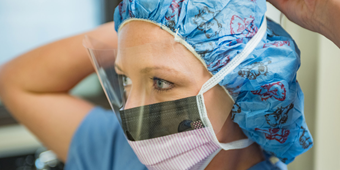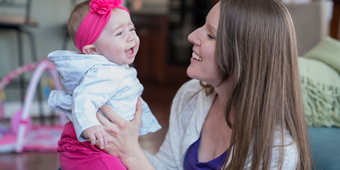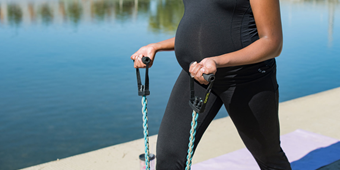A Safe “Nighty-Night” for Twins (and Other Multiples)

Find Your Perfect Match
Answer a few questions and we'll provide you with a list of primary care providers that best fit your needs.
Life is way more complicated when you give birth to twins, triplets, or other multiples — so shortcuts do come in handy! But one of those compromises should not be having your bundles of joy share a crib
“You’re creating a potentially unsafe situation when baby shares a bed with anyone else — and that includes another baby,” says Melinda Mintkenbaugh, RN. “Putting two or more babies in a crib could be dangerous if part of the body of one twin accidentally covers the face of the other, causing interference with breathing.
Advice from The American Academy of Pediatrics is clear: Bed sharing is never appropriate.
Having babies sleep in the parents’ room is an idea that appeals to many parents, even those who have multiples. “Room sharing is fine, but each baby needs his or her own crib or bassinet,” says Mintkenbaugh.
“You’re creating a potentially unsafe situation when baby shares a bed with anyone else — and that includes another baby.”
In fact, the Eunice Kennedy Shriver National Institute of Child Health and Human Development states that room sharing without bed sharing may reduce the risk of SIDS (Sudden Infant Death Syndrome) by as much as 50 percent and helps prevent accidental suffocation.
“Infants with low birth weights, which often includes many twins and other multiples, are at the highest risk of SIDS, so avoiding any practice which might add to the danger is important,” says Mintkenbaugh.
Following the ABCs of safe sleep, baby should be Alone, on her Back, in a Crib –the best way to prevent injury or death. The ABCs should be followed even when you’re traveling with the babies, but if unusual circumstances necessitate that multiples be in one crib, experts say to put them head-to-head at opposite ends of the crib.
“Cribs are safest without bumper pads, quilts, blankets, pillows and stuffed animals. These all pose a suffocation risk,” says Mintkenbaugh.
Find Your Perfect Match
Answer a few questions and we'll provide you with a list of primary care providers that best fit your needs.
Source: American Academy of Pediatrics; Melinda Mintkenbaugh, RN; Eunice Kennedy Shriver National Institute of Child Health and Human Development





